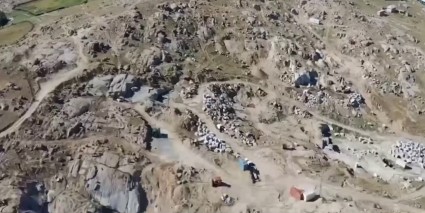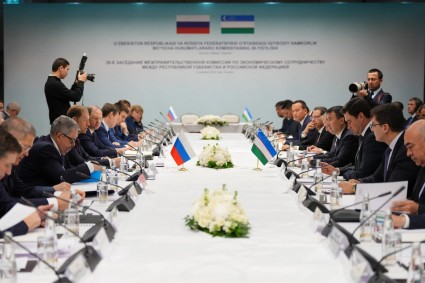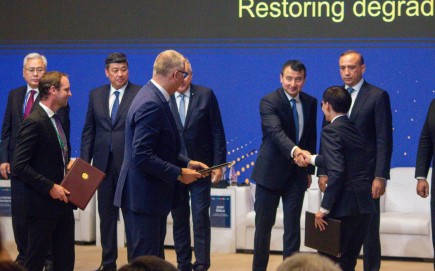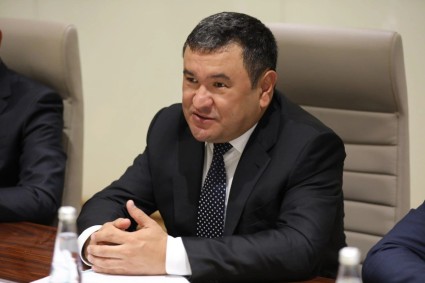Uzbekistan's GDP growth has remained strong since the mid-2000s. This is due primarily to favourable trade terms for the country’s export commodities (copper, gold, natural gas and cotton), the Government’s macro-economic management and limited exposure to international financial markets. In 2014 the economy grew by 8.1%.
This strong growth decreased slightly in 2015 (8%) and 2016 (7.8%). Growth is forecast at 7% in 2017 and 7.3% in 2018. Such growth levels make Uzbekistan one of the most dynamic economies of the CIS.
After independence, Uzbek authorities chose a strategy of gradual reform and import substitution, aimed in particular at achieving energy self-sufficiency. A deliberate government policy of economic diversification, export development and investment appear to be delivering results. These policies include the 'Programme of localisation of production of finished products', encouragement of the production of consumer goods, aid to exporters, support for SMEs and a programme for developing the services sector. Therefore, SMEs now employ the large majority of the workforce. The five-year public investment programme (2015-2019) supports economic activity, particularly in the construction sector.
This year, Uzbekistan suffered a decline in foreign demand for its exports and a drop in commodity prices, while domestic demand petered out as well. In 2016, inflation remained high (11.5%) and this trend is expected to continue in 2017. The national currency, the soum, has been depreciated, which may influence the cost of imports. On the other hand, the State aimed at reducing taxes while also keeping deficit under control. Moreover, the country has significant financial reserves (its Development and Reconstruction Fund held more than USD 15 billion according to latest results) and the government debt is low.
After deciding to reduce its imports of Uzbek gas in early 2015, Uzbekistan reached an agreement on gas supplies with Russia in March 2017 for the next five years. In the meantime, Uzbek-Chinese relations improved tremendously with bilateral trade reaching USD 4.2 billion in 2016 and expected to rise to USD 10 billion by 2020.
Uzbekistan suffers from its underdeveloped banking system, which is controlled by the State. It intends to contribute to the development of the private industrial sector, but levels of corruption remain high. Uzbekistan has hesitated to carry out privatisations, although some are being initiated in 2017. The country remains highly centralised and nationalised. Finally, a lot has been achieved in terms of the Uzbek business climate, however there is still much room for improvement.
Following the death of the first President Islam Karimov, in office since the country's independence, a presidential election was held in December 2016. Shavkat Mirziyoyev, the Prime Minister of Uzbekistan from 2003 to 2016, won the election. He initiated reforms to longstanding policies that had held back the Uzbek economy and isolated the country internationally.











